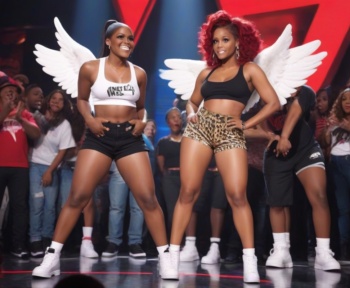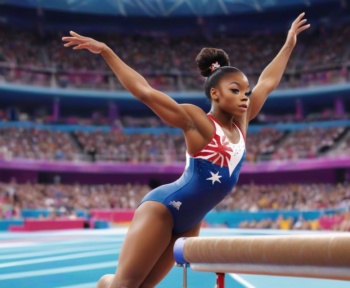In recent times, the intersection of celebrity culture and political discourse has become a vivid battleground of opinions and ideologies, notably underscored by the clash between actress Rachel Zegler and media figure Megyn Kelly. This confrontation not only magnified personal views but also spanned implications that sweep through sectors like entertainment, particularly affecting giants like Disney, involving broader discussions about celebrity influence, free speech, and societal divides.
Rachel Zegler, an actress catapulted into fame through her role in Steven Spielberg’s reimagining of “West Side Story,” found herself entrenched in controversy due to her potent remarks on social media. Following the unsettling political climate surrounding Donald Trump’s re-election efforts, Zegler vocalized her disquiet, expressing severe disdain for the administration and its supporters. Her strong expression of “another four years of hatred” and wishing that Trump along with his supporters “never know peace” set the digital sphere ablaze, eliciting myriad responses across the spectrum of political allegiance.
The escalation in tensions drew the attention of Megyn Kelly, a journalist known for her forthright commentary. On her platform on SiriusXM, Kelly delivered a stinging rebuke, disparaging Zegler personally and questioning the prudence behind Disney’s decision to cast her as Snow White in their forthcoming adaptation. Kelly drew comparisons with the ordeal of Gina Carano, who was ousted from “The Mandalorian” over her own controversial social media posts, underscoring what she perceived as inconsistent handling of misconduct based on clashing political views.
This incident reignited discussions on the responsibility carried by celebrities when expressing political opinions. Proponents of free speech advocate for Zegler’s right to personal expression, especially in an era of palpable political friction. Detractors, however, suggest celebrities hold the power to sway public sentiment, necessitating a more cautious approach in public communications to avoid exacerbating societal divisions.
Historical precedents reveal that celebrities have long straddled roles as political activists, from Marlon Brando to current influencers using their platforms to drive political campaigns. Yet, the rise of social media amplifies their voices, reaching millions instantly, thereby magnifying the impact of their words. Dr. Linda Steiner articulates this phenomenon, suggesting that contemporary celebrities navigate a thin line that could either endear public sentiment or provoke alienation.
For Disney, these developments present a precarious balancing act. The company, synonymous with family-friendly content and aspirational themes, faces public scrutiny about its casting choices amid polarizing times. The entertainment titan has maintained silence over the discourse, possibly deliberating the complex implications of either defending or dismissing Zegler, as they consider the broader repercussions on their brand image and stakeholder expectations.
The implications are profound for Zegler’s trajectory in Hollywood. Despite issuing an apology clarifying her comments as emotive rather than representational of her actual sentiments, the persistence of backlash casts shadows over her future projects, not least her role in the upcoming Snow White remake.
This scenario also serves as a lens to view the evolving dynamics for women in Hollywood. Amidst a transformative era advocating for equality and justice, women often face disproportionately harsh critique compared to their male counterparts. The Zegler-versus-Kelly episode explores these dimensions, asking broader cultural questions about the standards to which young actresses are held in the public domain.
More widely, the spat illustrates the tension-ridden landscape of free speech and societal expectation in the digital age. As ideological battles rage within online platforms, celebrities like Zegler find themselves at the heart of discourses that scrutinize their every word against the backdrop of broader societal values and expectations.
This incident not merely contemplates celebrity roles but also prompts reflections on the collective responsibilities when fostering public discourse. As Disney and others in the sphere navigate these waters, the outcome may set precedents affecting how cultural industries engage with celebrity political discourse moving forward. This potentially redefines relationships between public figures, corporate entities, and global audiences within our intricately connected and politically vibrant society. The unfolding of these events could very well mark a pivotal chapter in the annals of celebrity influence and political engagement.




